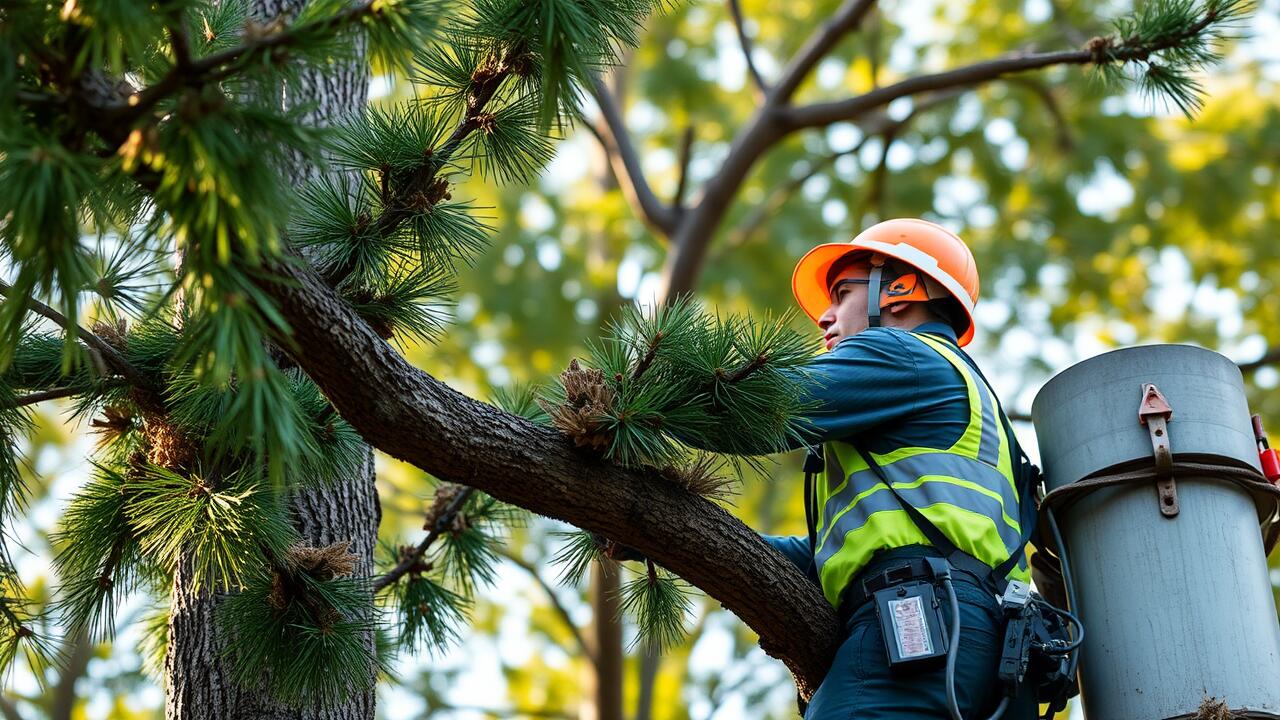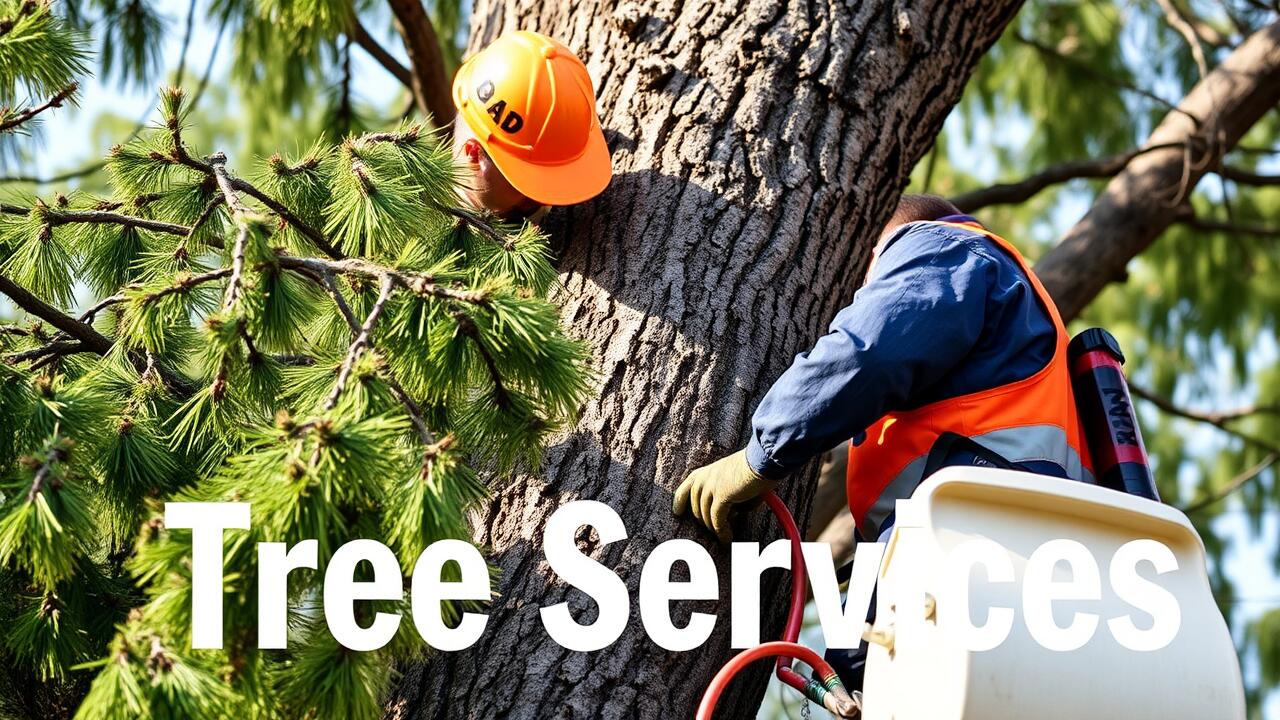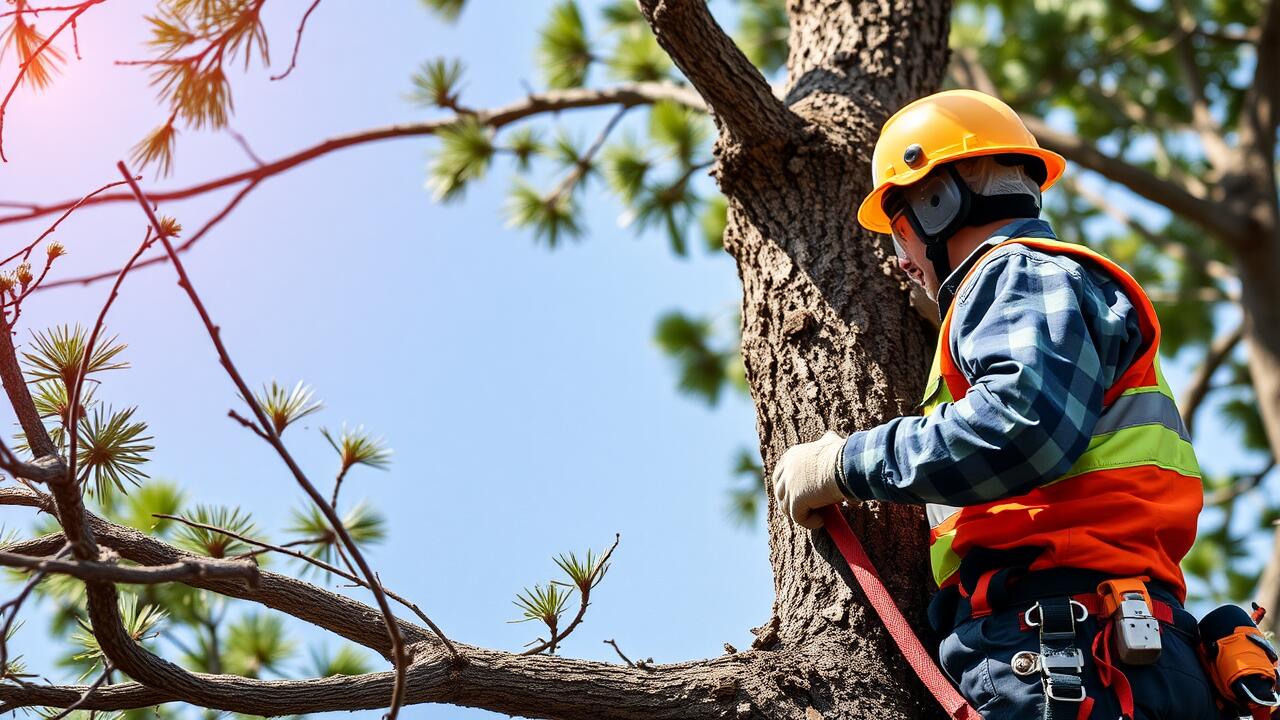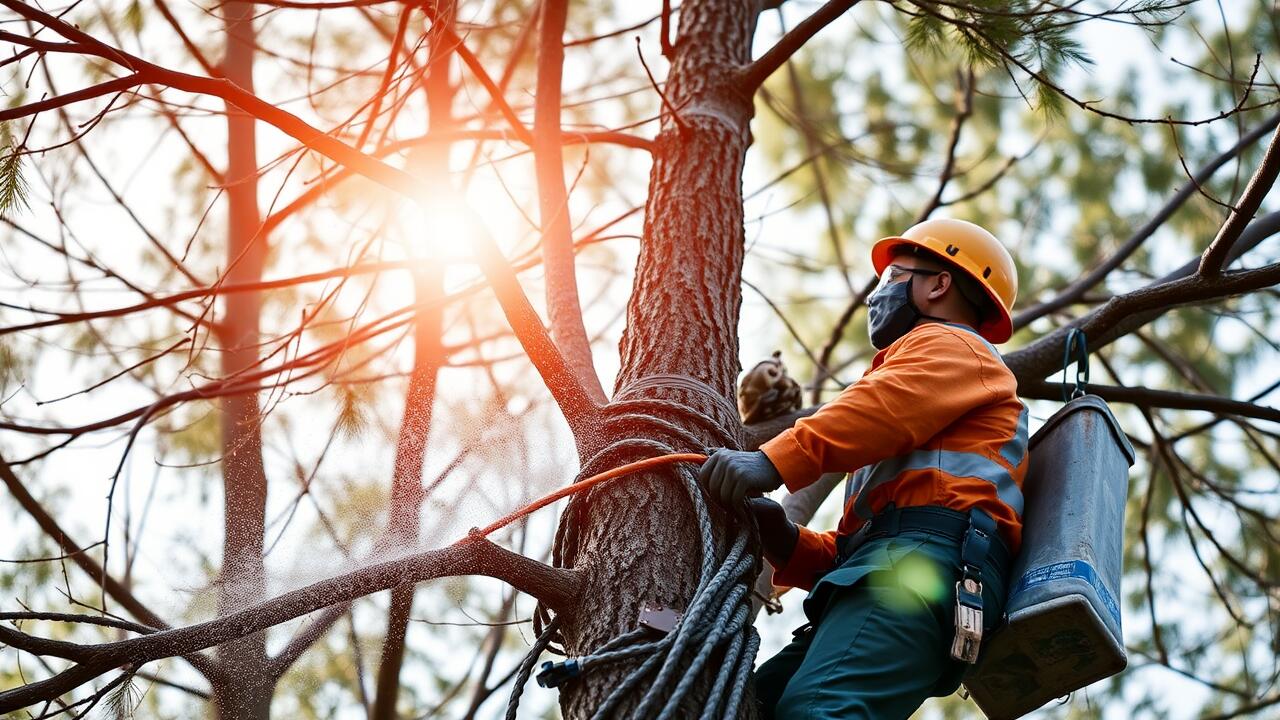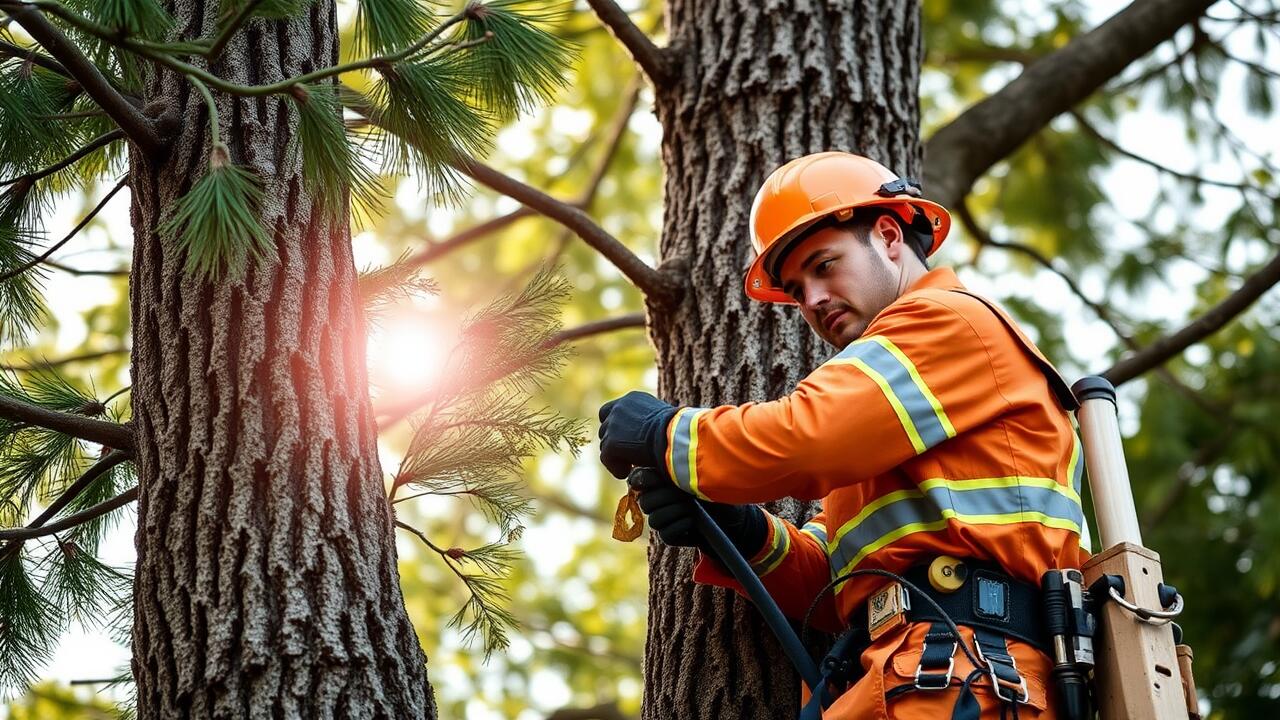
Removing Debris After Tree Fall
After a tree falls, the immediate priority is to clear the area of debris. This involves safely removing branches, leaves, and any parts of the trunk that may obstruct pathways or pose hazards to surrounding properties. Using basic tools such as chainsaws, handsaws, and wood chippers can facilitate this process. Wear protective gear to minimize the risk of injury while working with heavy materials.
For those who prefer professional assistance, Emergency Tree Services in Kirkwood, Atlanta, can offer reliable options for debris removal. These experts are equipped to handle larger fallen trees and can efficiently manage the entire cleanup process. Relying on their expertise ensures that the removal is done safely while addressing any potential damage to the landscape or infrastructure.
Best Practices for Clean-Up
After a tree falls, the first step in the clean-up process involves assessing the area for hazards. Look for downed power lines, which pose a significant risk and should be reported immediately. Remove any surrounding debris that can obstruct access for equipment or create additional hazards. Wearing appropriate safety gear, such as gloves, hard hats, and steel-toed boots, ensures personal protection throughout the clean-up. If the tree is large or tangled with other structures, it is advisable to seek assistance.
Following the initial assessment, begin cutting the tree into manageable pieces. Use a chainsaw or handsaw, depending on the tree's size, and always remember to cut from the top down to maintain control. Consider using a stump grinder for removal of the tree stump, as this can facilitate a cleaner area. For those unsure about handling large fallen trees, reaching out to Emergency Tree Services in Kirkwood, Atlanta, can provide expert guidance and efficient clean-up solutions. This helps prevent accidents while ensuring a thorough and safe restoration of the landscape.
Professional vs. DIY Removal
Homeowners often consider handling fallen tree removal themselves to save money. However, this approach can pose significant risks. Assessing the complexity of the situation is crucial, as fallen trees can be unpredictable. Factors such as the tree's size, location, and surrounding structures greatly influence safety during removal. Many individuals lack the necessary tools and expertise, which can lead to accidents or damage to property.
When a storm damages trees or a large tree falls unexpectedly, seeking professional help is advisable. Emergency Tree Services in Kirkwood, Atlanta, provide the expertise needed for safe and efficient removal. Professionals are trained to handle hazardous situations, ensuring that the process adheres to safety regulations. They also have the right equipment to remove debris without risk. Choosing to hire experts can ultimately save time and provide peace of mind.
When to Call in the Experts
Assessing whether to handle tree removal independently or call in professionals often hinges on the size and location of the fallen tree. A large tree that has fallen on or near power lines poses significant risk, as attempting to remove it without expertise can lead to severe injuries or damage. Knowledge of proper techniques and equipment is crucial in ensuring safety during the removal process. In cases involving hazardous situations, individuals should prioritize their safety and the safety of others around them.
For those unsure about how to proceed, it is advisable to reach out to services that specialize in tree removal. Emergency Tree Services in Kirkwood, Atlanta, are equipped to handle urgent situations efficiently and safely. They possess not only the tools required for the job but also the training to navigate potential hazards. Knowing when to defer to experts can make a significant difference in the resolution of fallen tree situations.
Environmental Considerations
Fallen trees can significantly impact the local ecosystem, altering habitats and affecting wildlife populations. Removing a tree requires careful consideration of the surrounding environment. Even if a tree poses a hazard, it's important to assess the potential ecological benefits it may provide. The fallen tree trunk can serve as a natural habitat for insects, birds, and small mammals, which play crucial roles in the ecosystem.
Proper management of wood waste is also essential. Many options exist for processing and reusing the wood, such as turning it into mulch or compost. This practice contributes to sustainability efforts by reducing landfill waste and enriching the soil. For situations where removal is necessary and environmental concerns weigh heavily, seeking professional assistance, such as Emergency Tree Services in Kirkwood, Atlanta, can ensure that the process respects the local ecology and follows best practices.
Managing Wood Waste Sustainably
Sustainable management of wood waste is essential for reducing environmental impact after a tree falls. Rather than simply discarding the remnants, homeowners can explore various options to repurpose the wood. Chipping branches creates mulch for gardens, while larger logs can serve as rustic seating or decorative elements in outdoor spaces. Additionally, local schools or community centers may welcome donations for artistic projects, fostering a sense of community while minimizing waste.
For extensive clean-up efforts, reaching out to professionals can ensure proper disposal and repurposing of wood materials. Emergency Tree Services in Kirkwood, Atlanta, often have established partnerships with local recycling centers and sawmills. They can provide insights into suitable methods for treating and redistributing wood waste. This approach supports local ecosystems and helps maintain sustainable practices during and after tree removal.
FAQS
What should I do immediately after a tree falls on my property?
First, ensure everyone's safety by keeping a safe distance from the fallen tree. Check for hazards like downed power lines. Then, assess the situation and determine if professional help is needed for removal.
What are the best practices for cleaning up tree debris?
Begin by clearing smaller branches and twigs. Use proper safety gear, including gloves and eye protection. For larger pieces, consider using a chainsaw, but make sure you have the necessary skills and equipment. Always dispose of debris according to local regulations.
When should I consider hiring a professional for tree removal?
You should hire a professional if the tree is large, poses a risk to your property, or is in a difficult-to-reach location. Additionally, if you're unsure about safely removing the tree yourself, it's best to call in the experts.
What environmental considerations should I keep in mind during tree removal?
Be aware of local wildlife habitats, as fallen trees can provide shelter for animals. Consider the impact on soil erosion and water runoff. It’s also important to manage wood waste sustainably, such as recycling or repurposing the wood.
How can I manage wood waste sustainably after a tree removal?
You can chip the wood into mulch, use it for firewood, or donate it to local community projects. Many areas also have wood recycling programs that can help you dispose of debris in an environmentally friendly way.
